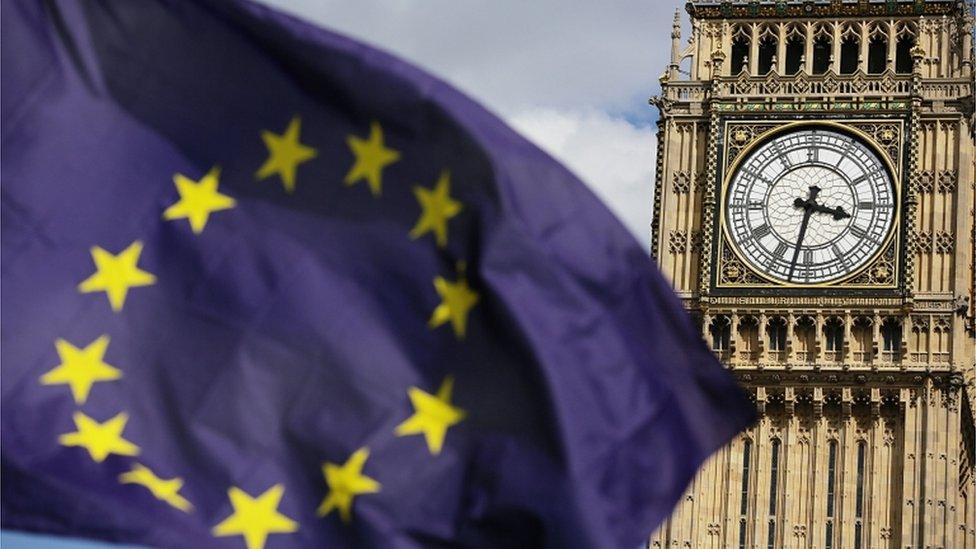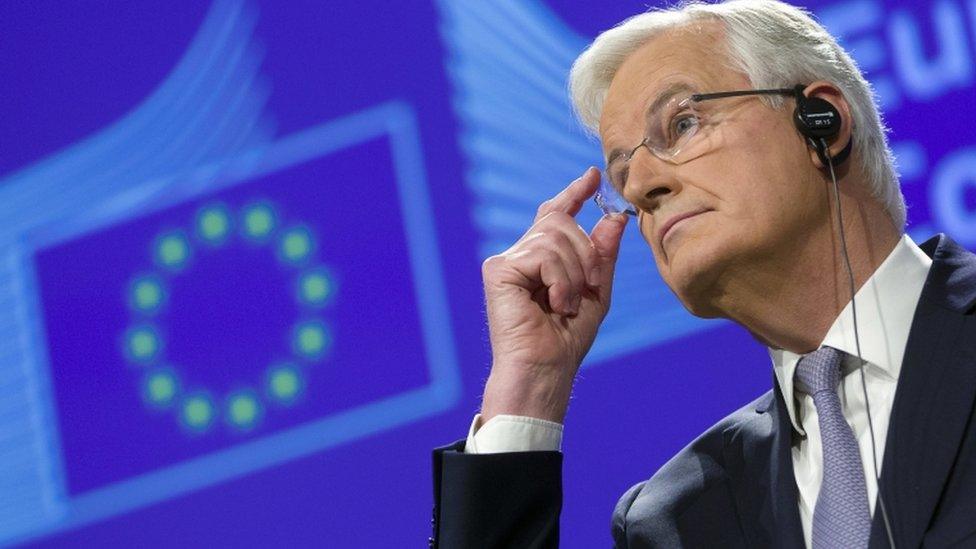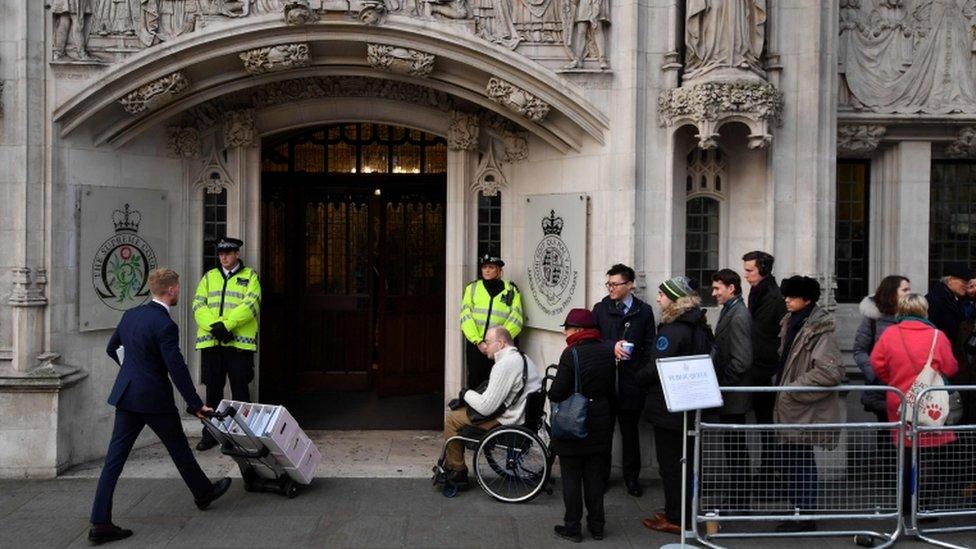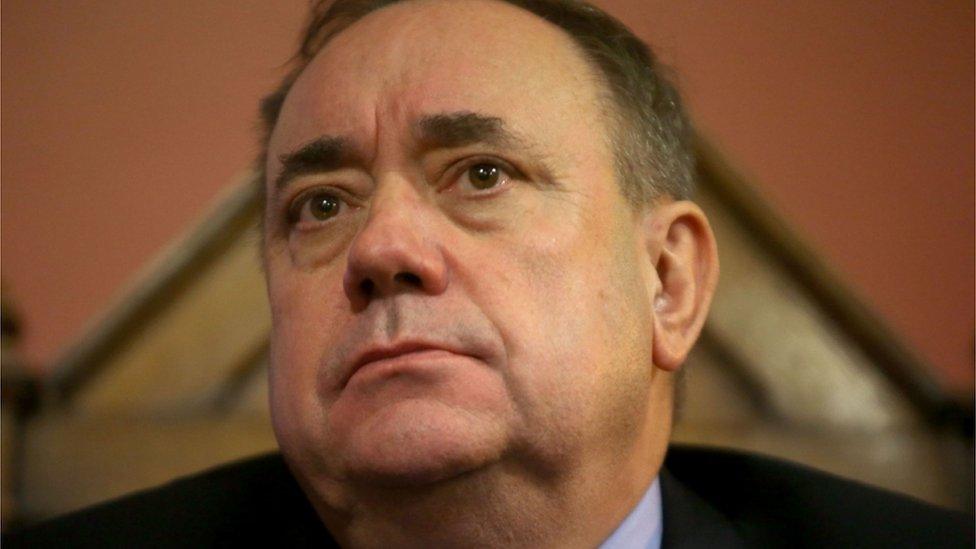Brexit, Barnier and Scotland
- Published

The timetable for Brexit negotiations just got a little tighter.
The European Commission's chief negotiator, Michel Barnier, has suggested that any deal will need to be concluded within 18 months rather than two years.
That is to leave enough time for the UK, the 27 other EU countries and the European Parliament to approve the Brexit plan.
The foreign secretary, Boris Johnson, said that would be "ample time" to sort the terms of the UK's departure.
In his first news conference since taking on his new role, Mr Barnier said the negotiations would be "legally complex".
Having different arrangements for different parts of the UK would obviously add to that complexity.
Mr Barnier has said the EU will do its "utmost" to tackle the issues Brexit raises in Northern Ireland, which will have the UK's only land frontier with the EU.
But the European Commission will not speculate on what may or may not be possible for Scotland.

Michel Barnier has suggested that any Brexit deal will need to be concluded within 18 months
It regards that as an internal matter for the UK to resolve ahead of Brexit negotiations.
Scotland's first minister, Nicola Sturgeon, wants to keep Scotland in the European single market, even if the rest of the UK is leaving.
The chancellor, Philip Hammond, appeared to rule out such a special arrangement on a visit to Edinburgh last week.
It was "not a realistic prospect" he said.
The Scottish government has said it will publish proposals to maintain Scotland's EU links by the end of the year.
One option Ms Sturgeon has said is being looked at is the so-called Norway model.
Norway is in the European Economic Area as a member of the European Free Trade Association, which under current rules can only be joined by independent states.

There have been large queues outside the Supreme Court as people try to get into the public gallery for the Brexit case
Any special arrangement for Scotland would require UK and EU backing.
The UK seems very unlikely to go down this route and the EU is very clear that it will only negotiate with the UK government.
In other words, it will discuss what the UK brings to the table.
However, BBC Scotland understands that Michel Barnier will be happy to meet other interested parties once the talks get under way.
That potentially includes the Scottish government.
Separately, it appears the SNP's international affairs spokesman, Alex Salmond, has asked to see Commission president Jean-Claude Juncker in Brussels ahead of December's EU summit.
President Juncker appointed Michel Barnier as the European Commission's chief Brexit negotiator in July - a month after the UK's referendum vote to leave the EU.
At the time, he said he "wanted an experienced politician for this difficult job".
Courtesy meeting
A former French foreign minister and MEP, Mr Barnier also reformed the banking system as European Commissioner for the Internal Market and Financial Services.
He has a reputation as a tough negotiator.
Since taking up his current role on 1 October, Mr Barnier has shuttled between European capitals consulting EU member governments.
He has also held an initial courtesy meeting with the UK Brexit secretary, David Davis.
Mr Barnier has denied reports that he intended to conduct negotiations in French.
On social media he said that he worked as often in English as in French and that the "linguistic regime" would need to be agreed between both sides.
The formal negotiations will only begin when the UK triggers the exit process under Article 50 of the Lisbon Treaty.
Theresa May intends to do that by the end of March 2017.

Alex Salmond has asked to meet European Commission president Jean-Claude Juncker
The UK Supreme Court must first decide if she has the power to start the process without parliament's approval.
The Scottish government is among those represented in the case.
It wants the UK to seek the consent of the devolved administrations for Brexit legislation.
This would not give Holyrood a veto because any objections could be overruled by Westminster.
That would cause a clash between the governments in Edinburgh and London.
Opinion polls
The former first minister, Alex Salmond said this would amount to a "constitutional crisis" that would be to Scotland's advantage.
The Scottish Conservative leader, Ruth Davidson, has warned against an "unnecessarily divisive Brexit" and has previously urged the SNP not to pursue a second independence referendum.
The Scottish government is consulting on a draft referendum bill to keep the option of another vote on independence open.
Ms Sturgeon has said she would seek the explicit legal authority to hold the vote from the UK government, if she wants to go ahead.
Opinion polls suggest there has been little change in the overall level of support for independence, external since the 2014 referendum which the "no" side won 55% - 45%.
The Scottish Labour leader, Kezia Dugdale, is due to give a speech on Wednesday outlining plans for a more powerful Scottish Parliament within the UK following the Brexit vote.